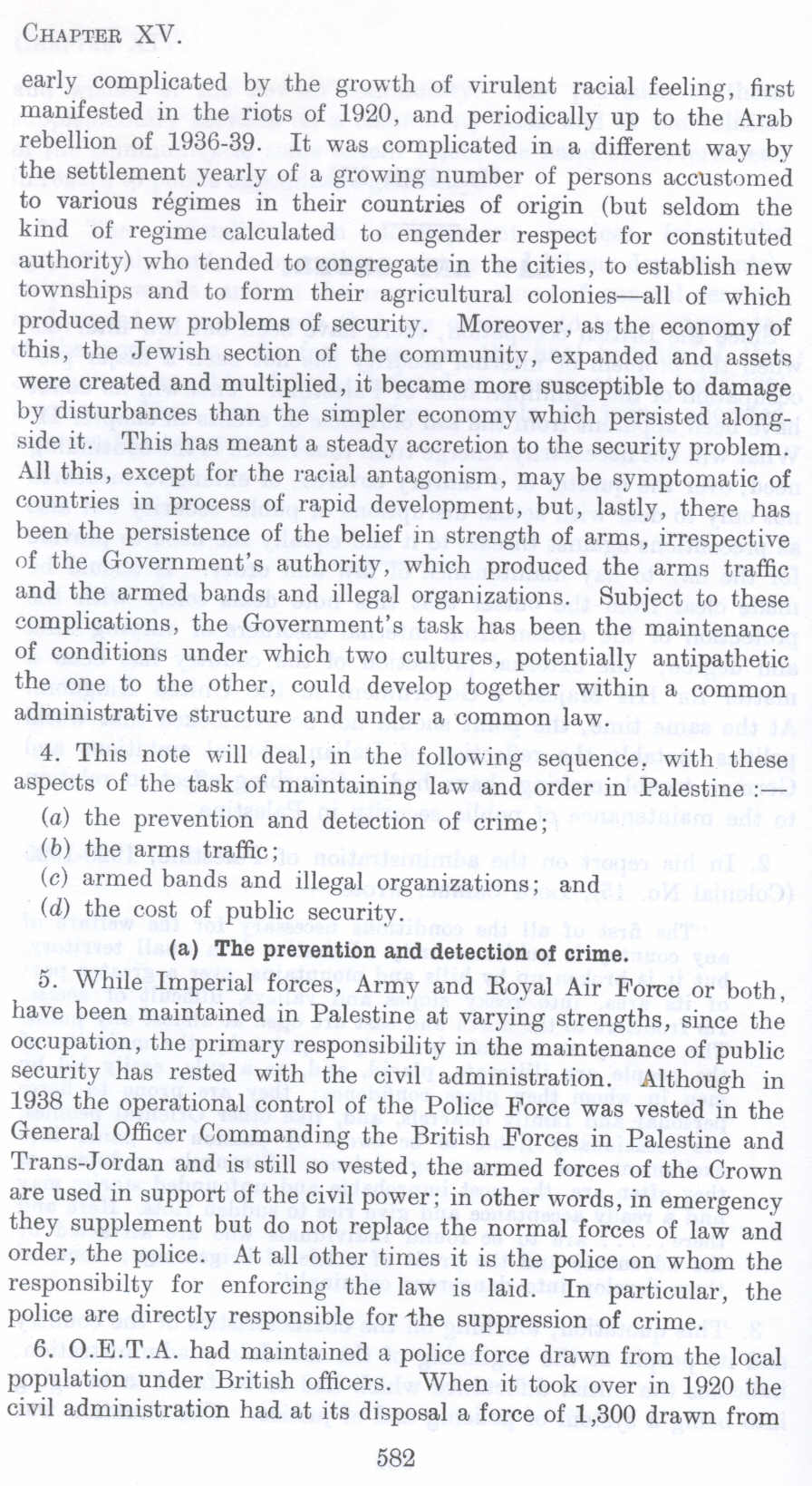| Prev | Next |  |
| Prev | Next |
| PalestineRemembered | About Us | Oral History | العربية | |
| Pictures | Zionist FAQs | Haavara | Maps | |
| Search |
| Camps |
| Districts |
| Acre |
| Baysan |
| Beersheba |
| Bethlehem |
| Gaza |
| Haifa |
| Hebron |
| Jaffa |
| Jericho |
| Jerusalem |
| Jinin |
| Nablus |
| Nazareth |
| Ramallah |
| al-Ramla |
| Safad |
| Tiberias |
| Tulkarm |
| Donate |
| Contact |
| Profile |
| Videos |
Prevention and Detection of Crime in Palestine before 1948 (Nakba), British Mandate: A Survey of Palestine: Volume II - Page 582. Chapter XV: Law and Order : (a) |
Disclaimer
The above documents, article, interviews, movies, podcasts, or stories reflects solely the research and opinions of its authors. PalestineRemembered.com makes its best effort to validate its contents.


Post Your Comment
*It should be NOTED that your email address won't be shared, and all communications between members will be routed via the website's mail server.
early complicated by the growth of virulent racial feeling, first manifested in the riots of 1920, and periodically up to the Arab rebellion of 1936-39. It was complicated in a different way by the settlement yearly of a growing number of persons accustomed to various regimes in their countries of origin (but seldom the kind of regime calculated to engender respect for constituted authority) who tended to congregate in the cities, to establish new townships and to form their agricultural colonies-all of which produced new problems of security. Moreover, as the economy of this , the Jewish section of the community, expanded and assets were created and multiplied, it became more susceptible to damage by disturbances than the simpler economy which persisted alongside it. This has meant a steady accretion to the security problem. All this, except for the racial antagonism, may be symptomatic of countries in process of rapid development, but, lastly, there has been the persistence of the belief in strength of arms, irrespective of the Government's authority, which produced the arms traffic and the armed bands and illegal organizations. Subject to these complications, the Government's task has been the maintenance of conditions under which two cultures, potentially antipathetic the one to the other, could develop together within a common administrative structure and under a common law.
4. This note will deal, in the following sequence, with these
aspects of the task of maintaining Jaw and order in Palestine (a) the prevention and detection of crime;
(b) the arms traffic;
(c) armed bands and illegal organizations; and (d) the cost of public security.
(a) The prevention and detection of crime.
5. While Imperial forces, Army and Royal Air Force or both, have been maintained in Palestine at varying strengths, since the occupation, the primary responsibility in the maintenance of public security has rested with the civil administration. Although in 1938 the operational control of the Police Force was vested in the General Officer Commanding the British Forces in Palestine and Trans-Jordan and is still so vested, the armed forces of the Crown are used in support of the civil power; in other words, in emergency they supplement but do not replace the normal forces of law and order, the police. At all other times it is the police on whom the responsibility for enforcing the law is laid. In particular, the police are directly responsible for the suppression of crime.
6. 0.E.T.A. bad maintained a police force drawn from the local population under British officers. When it took over in 1920 the civil administration had at its disposal a force of 1,300 drawn from
582